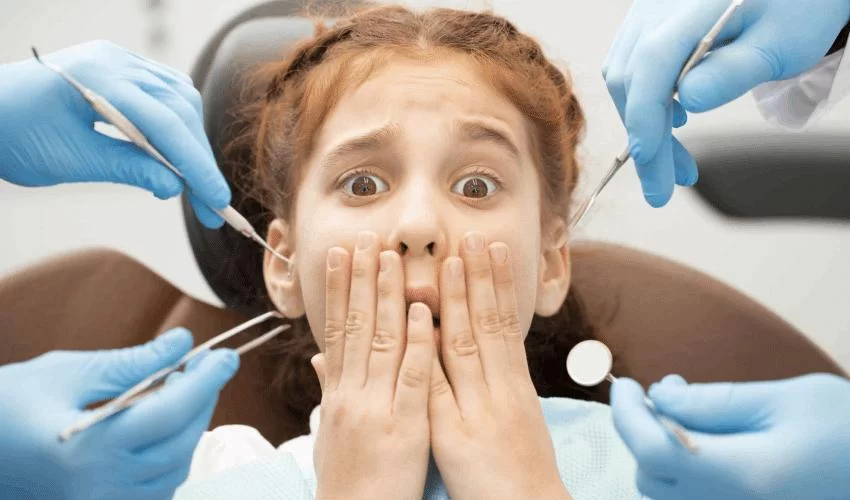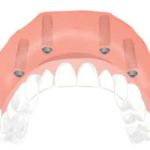
Helping Your Child Overcome Dental Anxiety: Practical Tips for Parents
As a parent, one of the most challenging experiences is dealing with your child's dental anxiety. I know from personal experience how difficult it can be to watch your child become distressed at the thought of a dentist appointment. Dental visits are often essential for good health, yet many children are frightened of the unfamiliar environment, the sounds, and the unknown. This fear can result in tears, resistance, and even avoidance of necessary care. Over the years, I’ve discovered several effective strategies that can help reduce dental anxiety in children and make the experience more manageable for both the child and the parent.
Understanding Why Children Experience Dental Anxiety
Dental anxiety in children is more common than you might think. From my own experiences with my kids, I’ve learned that dental fear can stem from many sources. Some children are naturally more anxious, while others develop a fear after a negative experience at the dentist. It’s not uncommon for a child to be afraid of the unknown or feel nervous about the sounds of dental tools. For some children, it may even be about the physical sensations of dental work, such as the vibrations or the feeling of something in their mouth.
In my case, my daughter had a bad experience at the dentist when she was younger. The noise of the drill and the strange taste of the dental products were enough to make her develop a fear of the dentist. It took time, patience, and the right strategies to help her overcome that fear. But once we figured out how to approach her dental visits, she became much more at ease with the whole process.
1. Start Early: Introducing Your Child to the Dentist
One of the best ways to reduce dental anxiety is by starting dental visits early. When my son had his first dental appointment, I made sure it was as relaxed and positive as possible. According to experts, it's a good idea to schedule your child’s first dental visit by their first birthday or when their first tooth appears. Early visits help familiarize children with the dentist’s office, making it less intimidating as they grow older.
During this first visit, it’s important to keep things light and fun. I remember taking my son to a pediatric dentist who made the entire experience feel like an adventure. The staff used child-friendly language, and the dentist showed him all the tools in a playful manner, explaining what each one does. This helped my son associate the dentist’s office with positive experiences instead of fear.
2. Use Positive Reinforcement and Relaxation Techniques
Positive reinforcement has been an invaluable tool in helping my children overcome dental anxiety. The more I praised them for their bravery before, during, and after the dental visit, the less anxious they became. I’ve always used small rewards after dental appointments, such as a sticker or a favorite treat, to make the experience feel more rewarding and less stressful. In fact, this simple approach worked wonders for my daughter when she was dealing with her dental fear.
Another strategy that I’ve found incredibly helpful is teaching my kids relaxation techniques. Deep breathing, for example, is a great way to calm nerves. I practiced breathing exercises with my children before each dental visit. I would have them breathe in deeply for a count of four, hold their breath for a few seconds, and then breathe out slowly. Over time, they became much more relaxed when the dentist was preparing to work on them. This simple technique has helped them stay calm during procedures and reduced their anxiety significantly.
3. Choose a Pediatric Dentist Specializing in Kids
When it comes to helping children overcome dental anxiety, finding the right dentist is crucial. I realized that choosing a pediatric dentist was one of the best decisions I made. Pediatric dentists are specially trained to handle children’s fears and to make dental visits enjoyable and stress-free. They often have a welcoming office atmosphere, with toys and child-sized dental equipment designed to make kids feel at ease.
My son’s pediatric dentist had a comforting and gentle approach that helped reduce his anxiety. The dentist would explain each step of the procedure in a fun and engaging way, making sure to check in with my son to see how he was feeling throughout the appointment. Pediatric dentists are experienced at working with anxious children and often offer sedation options, such as nitrous oxide (laughing gas), for children who experience more severe dental anxiety.
4. Prepare Your Child for the Visit
Preparation is key to reducing dental anxiety, and this is something I’ve learned over time. I always talk to my children ahead of time about the dentist visit, but I make sure to keep the conversation positive and simple. I try to avoid using words that might increase their fear, such as “needle,” “hurt,” or “pain.” Instead, I focus on reassuring them that the dentist is there to help them keep their teeth healthy, and that the visit will be quick and easy.
I also make it a point to read books or watch videos with them that show kids having positive experiences at the dentist. There are plenty of children’s books and cartoons that explain dental visits in a fun and relatable way. For example, we watched a short video about a little bear going to the dentist for the first time. It really helped my kids feel more comfortable about what to expect. The key is to make them feel informed and in control, without overwhelming them with too much detail.
5. Avoiding Forceful Approaches and Staying Calm
One of the biggest mistakes parents can make when dealing with a child’s dental anxiety is trying to force the child into the chair or the dental procedure. I learned this the hard way when I tried to rush my daughter into getting a procedure done quickly. Not only did it increase her anxiety, but it also caused her to develop a deeper fear of dental visits.
Instead, it’s important to stay calm and be patient. If your child is scared or refuses to cooperate, don’t force them. Instead, talk to the dentist about taking a break or trying a different approach. A good pediatric dentist will understand your child’s fear and will work with you to make the experience as comfortable as possible. Sometimes, simply allowing the child to take a break, walk around, or even try sitting in the chair without any work being done can help them feel less anxious and more in control of the situation.
6. Dealing with Severe Dental Anxiety and Phobias
In some cases, dental anxiety can develop into a full-blown dental phobia, where the fear is so intense that the child refuses to visit the dentist altogether. I have seen cases where children’s dental anxiety becomes so severe that they avoid dental appointments for years. In these situations, it’s important to take a more comprehensive approach to managing the fear. Working with a therapist or counselor who specializes in anxiety or phobias can be incredibly helpful. Cognitive Behavioral Therapy (CBT) is one effective method for helping children overcome deep-seated fears. This therapy helps children understand their fear, break it down into smaller, more manageable parts, and learn how to confront and manage the anxiety in healthy ways.
In severe cases, sedation dentistry may also be an option to help children with dental phobias undergo necessary procedures. This involves using medications like nitrous oxide or oral sedatives to help relax the child during treatment. It’s important to discuss all options with the dentist to determine what is best for your child’s unique needs.
Conclusion
Dental anxiety is a common issue that many children face, but with the right approach, it’s something that can be managed and overcome. I’ve learned through experience that starting early, using relaxation techniques, choosing the right pediatric dentist, and preparing your child for the visit can go a long way in easing their fears. Above all, staying calm, patient, and supportive is essential in helping your child feel safe and confident during their dental visits. By taking these steps, you can help your child develop a positive attitude towards dental care, setting them up for a lifetime of healthy teeth and gums.







 Pratte John DDS4.0 (15 review)
Pratte John DDS4.0 (15 review) Pachter Orthodontics4.0 (41 review)
Pachter Orthodontics4.0 (41 review) Pediatric Dental Specialists4.0 (302 review)
Pediatric Dental Specialists4.0 (302 review) Dental Implant Solutions Kinnelon, NJ5.0 (6 review)
Dental Implant Solutions Kinnelon, NJ5.0 (6 review) Pacer Dental P.C.4.0 (130 review)
Pacer Dental P.C.4.0 (130 review) Arlington Dental Group and Orthodontics4.0 (210 review)
Arlington Dental Group and Orthodontics4.0 (210 review) The Importance of Oral Health Education During Pregnancy for a Healthy Pregnancy
The Importance of Oral Health Education During Pregnancy for a Healthy Pregnancy Best Tips for Brushing Your Teeth Properly for Healthy Gums: Essential Techniques for Oral Health
Best Tips for Brushing Your Teeth Properly for Healthy Gums: Essential Techniques for Oral Health Why Skipping Dental Checkups Can Lead to Bigger Oral Health Problems
Why Skipping Dental Checkups Can Lead to Bigger Oral Health Problems Advantages of Porcelain Dental Restorations
Advantages of Porcelain Dental Restorations How Can Diabetes Cause Tooth and Gum Problems? Preventing and Managing Oral Health Issues
How Can Diabetes Cause Tooth and Gum Problems? Preventing and Managing Oral Health Issues Healthy Habits for Promoting Good Oral Health and Hygiene: Tips for a Healthy Smile
Healthy Habits for Promoting Good Oral Health and Hygiene: Tips for a Healthy Smile